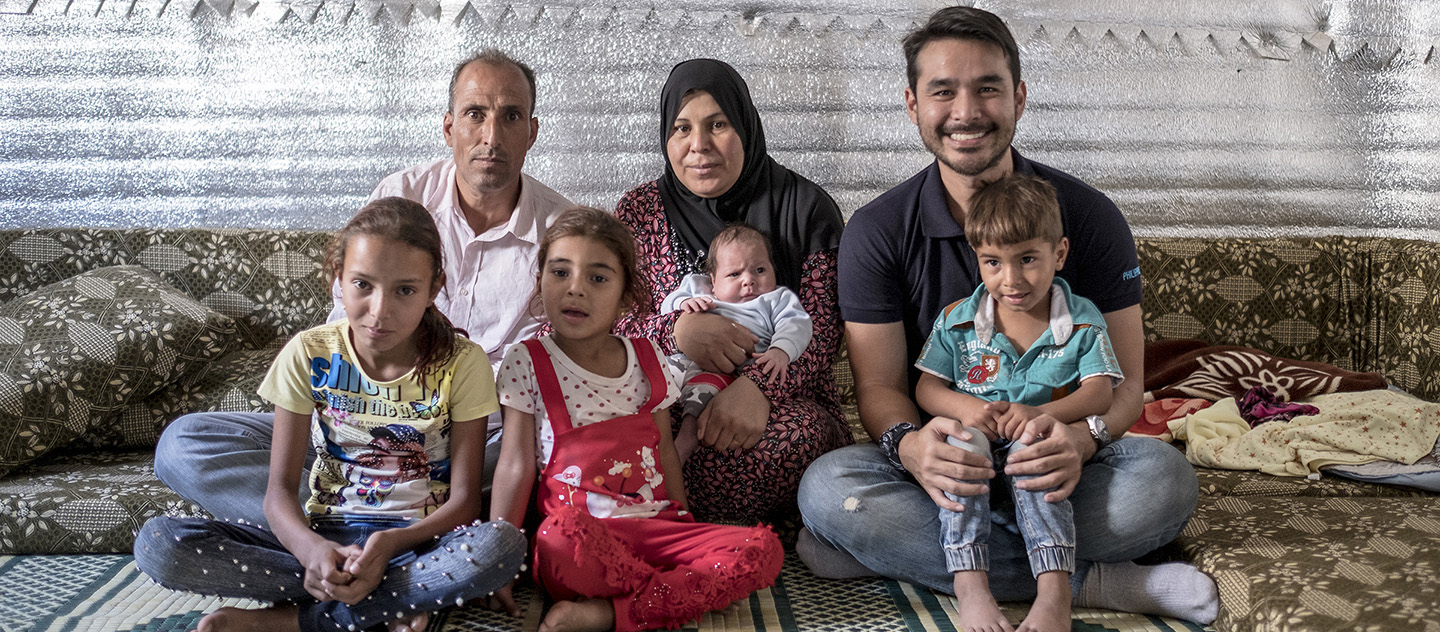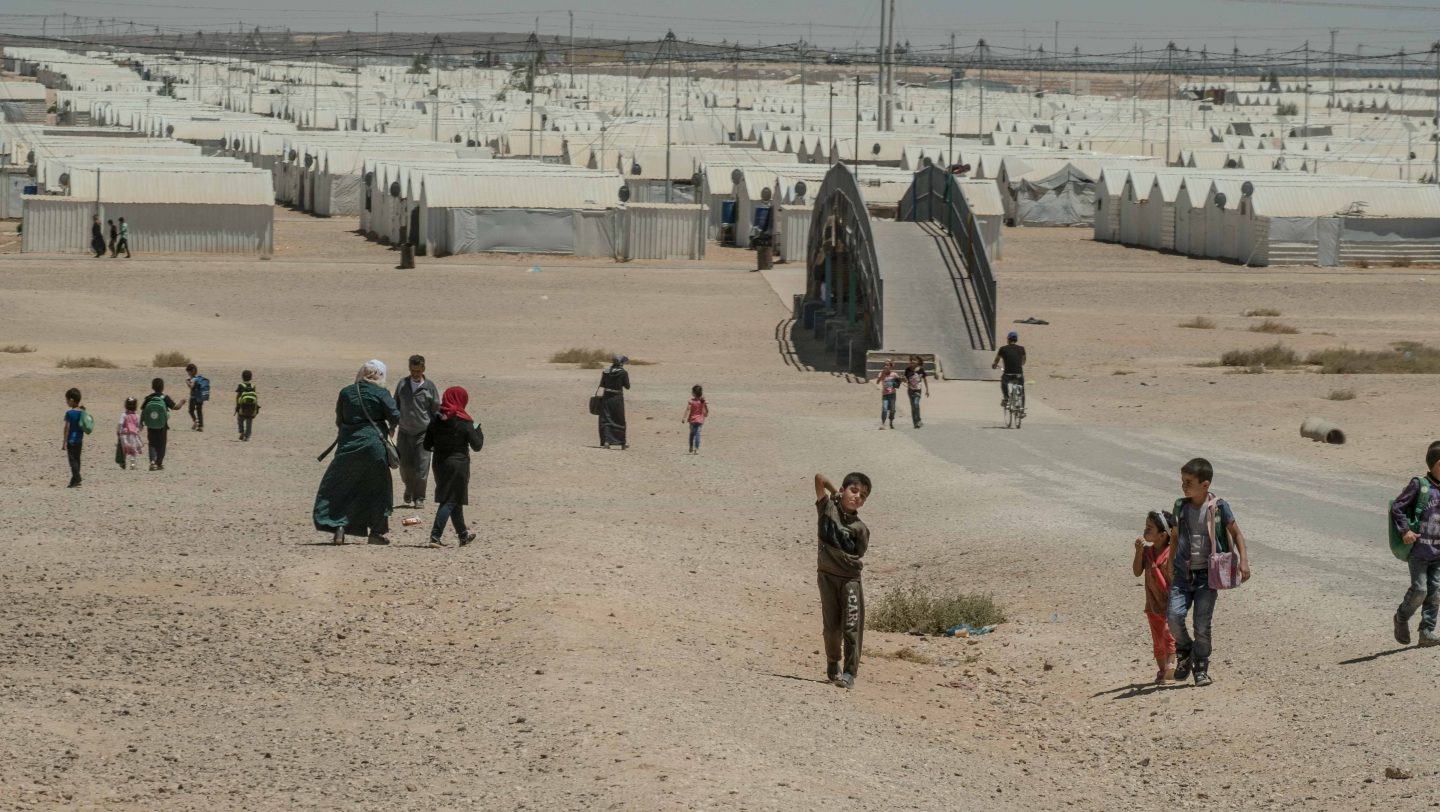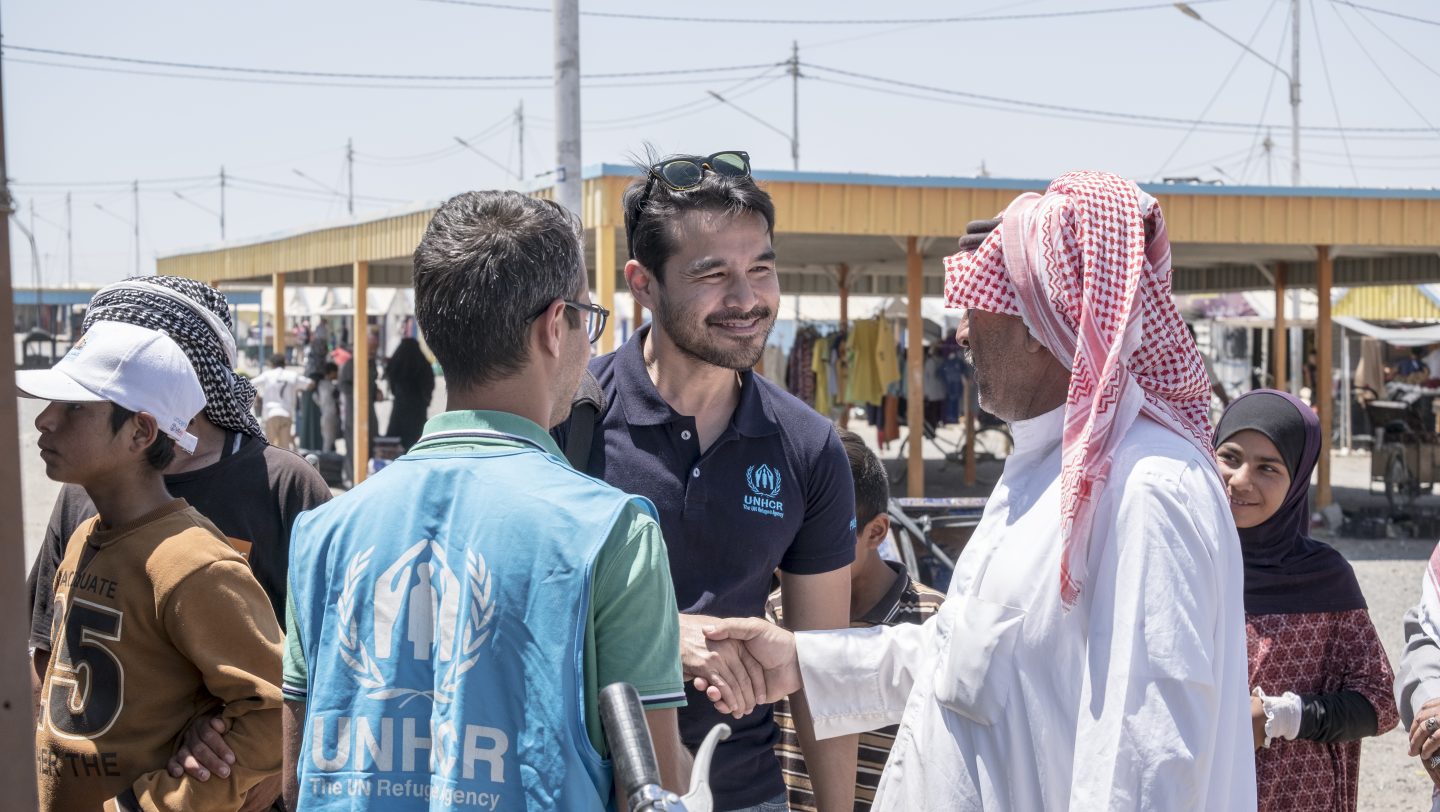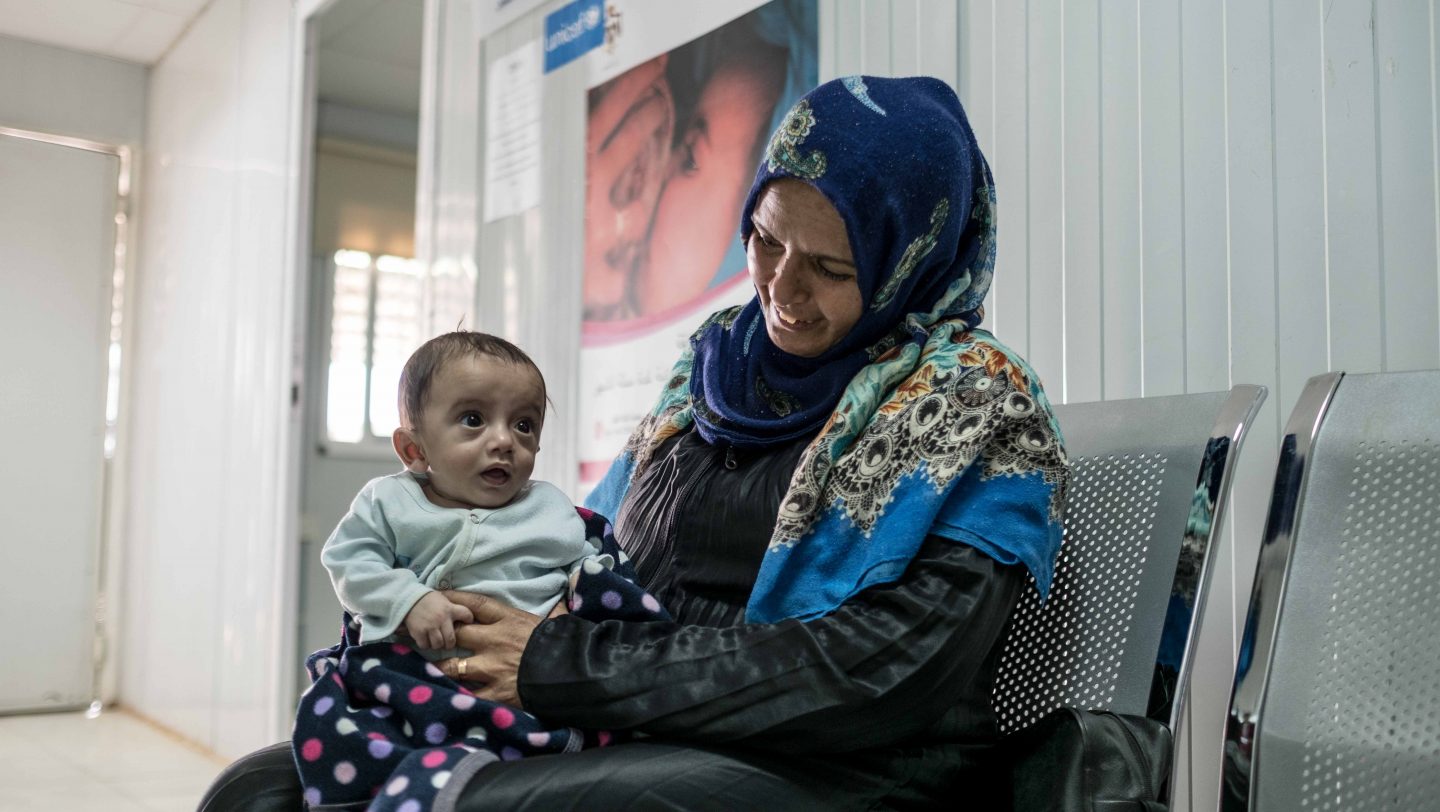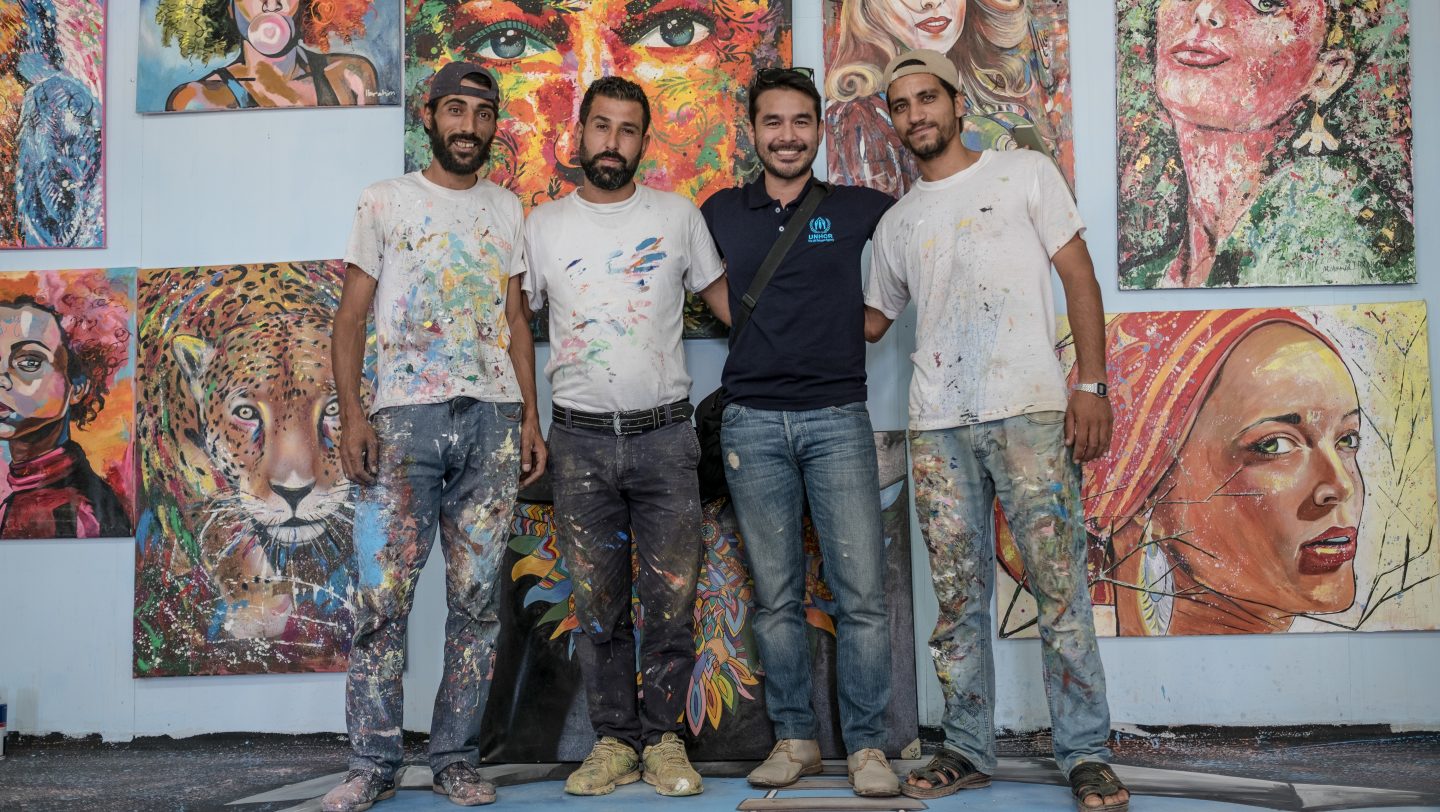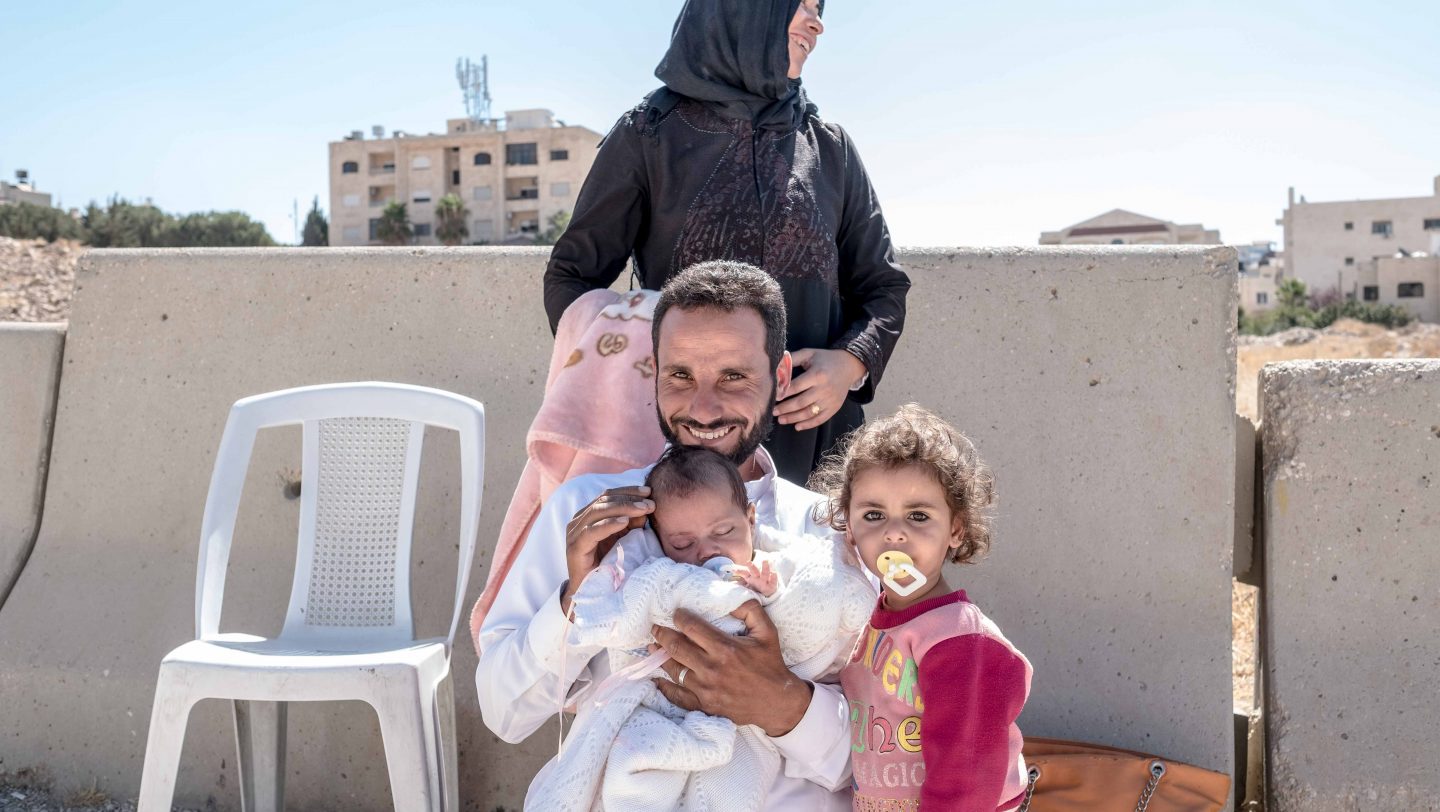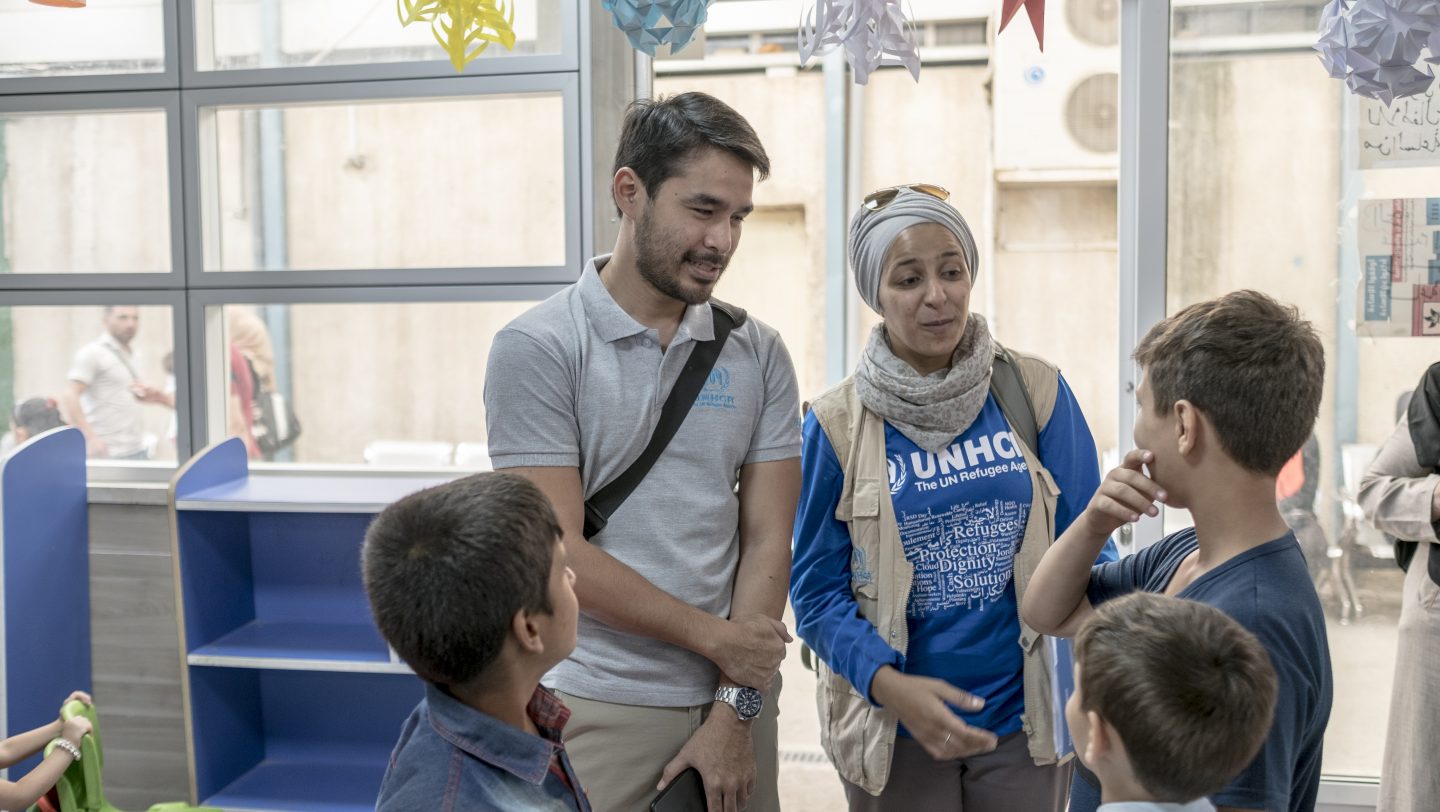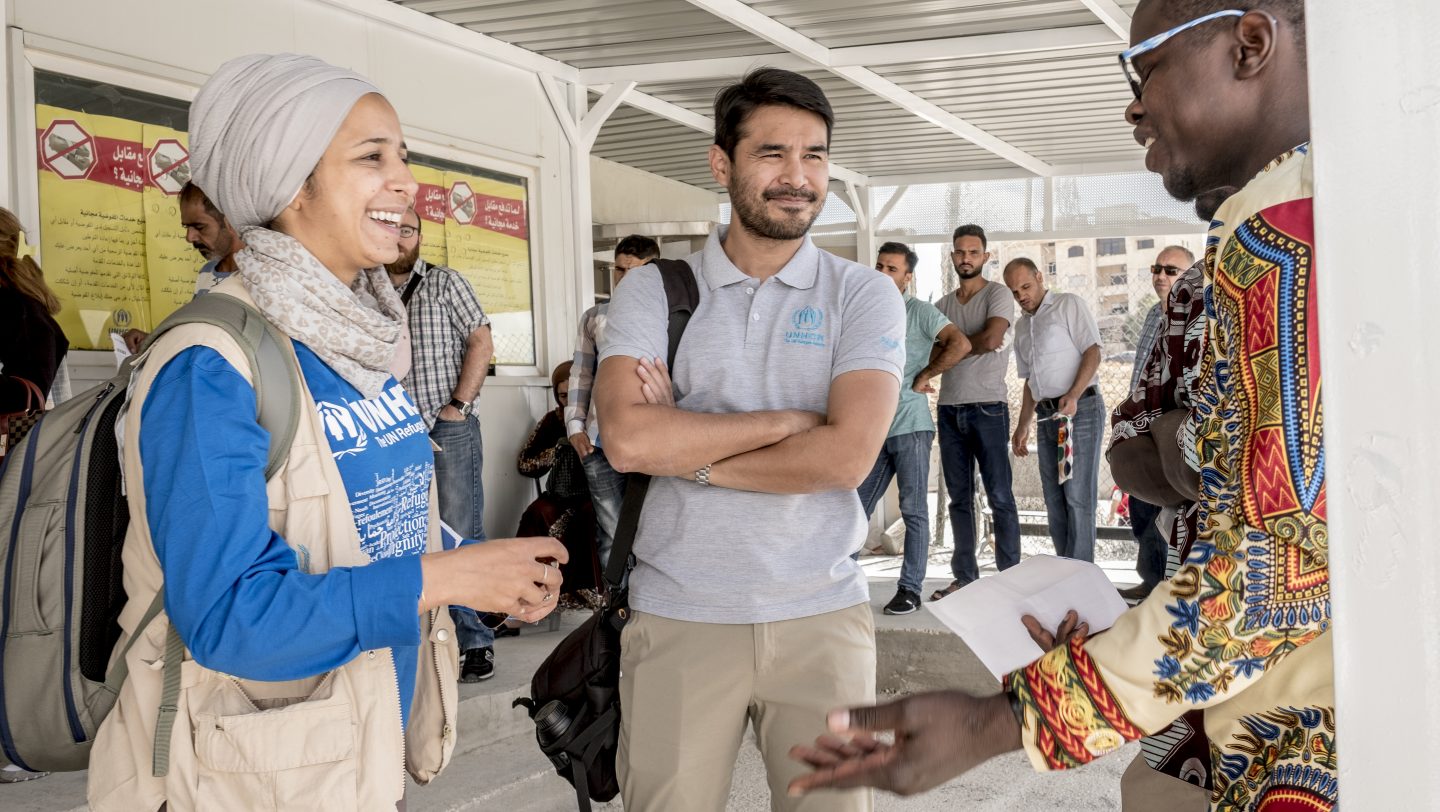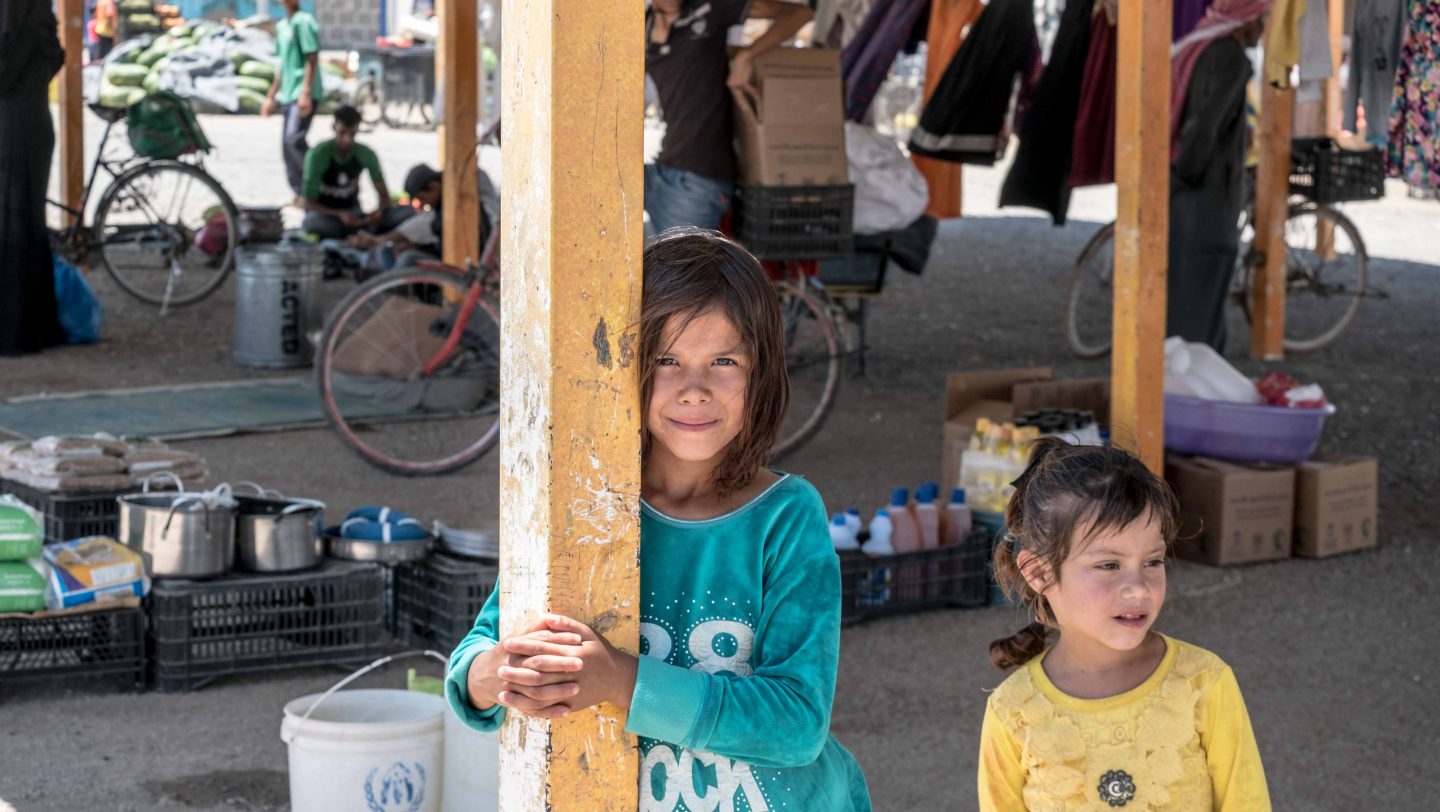Atom Araullo: “People who have little have the most to give”
Following a mission to Jordan, the UNHCR High Profile Supporter and journalist puts the spotlight on the Syrian refugee crisis, and draws similarities between the generosity of Jordanians and Filipinos.
UNHCR High Profile Supporter Atom Araullo invites Filipinos to stand in solidarity #WithRefugees and with the people of Syria.
After nearly eight years of war, conflict in Syria rages on, dashing the hopes of millions of refugees who dream of returning home when conditions are safe.
In a visit to Jordan, UNHCR High Profile Supporter and broadcast journalist Atom Araullo met with individuals and families who have found safety in this nation that has generously welcomed more than 667,000 Syrian refugees since conflict erupted in March 2011.
In Azraq camp, Atom met Eid Al-Zlefan who fled the rural town of Homs in 2016 with his family. Escalating violence forced them to leave everything behind: the children’s schooling, the neighbors they loved, and even the sheep they tended. With little food and water, they risked a dangerous journey to Jordan for 20 days in the hopes of building a new life—away from the sound of bombs raining on their village.
“I miss Syria, I miss home. Home is dear to us, wherever we are from. But Syria is different now, and I am scared to go back and I worry that I will no longer find there the people I love. Now, after everything has changed and deteriorated, I am not thinking of even going farther than Jordan. The future of Syria is vague but we always hope for the best,” said Eid.
“What I miss the most about Syria is something as simple as celebrating the Eid holidays, Valentine’s Day, and Mother’s Day there,” added his wife Um Jihan.
Since their family’s relocation to Azraq in 2016, Eid has been supporting community activities in his village. Amid the arid and hot conditions in the camp, he has also started growing a small patch of fruits and vegetables on a thin strip of soil beside his shelter.
When told that there are Filipinos are supporting UNHCR’s work for Syrian refugees through monthly donations, Eid says: “Thank you so much for your care. We never forget our friends.”
Life in Azraq Camp
Currently home to about 36,000 Syrian refugees, Azraq was established in 2014 after the larger Zaatari Refugee Camp reached maximum capacity. It has four villages, each with their own schools, hospital, and marketplace. Azraq is also the first refugee camp to set up a solar plant.
Azraq’s community support centers also offer a range of activities that allow refugees to rebuild their lives. Here, Atom met artists, children playing their favorite sport—football—and women and mothers learning new skills like sewing and even hairdressing.
After going around the camp for a full day, Atom observed that Azraq is a testament that on an otherwise barren desert, life can spring forth. Here, tens of thousands of people who escaped unspeakable horrors and violence can find healing and dignity.
“An important part of their rehabilitation is being able to access these services that make them feel that they are one community and that they are able to use their talents to help themselves and also help others,” said Atom.
Generosity and compassion: What Jordanians and Filipinos have in common
While the devastation inside Syria is what comes to mind when the war is mentioned, it is important to note that most Syrian refugees are hosted in neighboring countries like Jordan, Lebanon, and Turkey. UNHCR continues to advocate for support for host countries among the international community. As long as there is no political solution to the conflict, the international community must step up its assistance in the host countries.
Atom said that amid the tremendous pressure on Jordan’s resources, what remained intact was the generosity and compassion that the Jordanian people have for families forced to flee.
“It’s really astonishing that people who have little have the most to give. They don’t hesitate to give help, accept refugees, and even give moral support. That is one of the things I witnessed from the Jordanians that reminded me of Filipinos back home.”
“It’s really astonishing that people who have little have the most to give. They don’t hesitate to give help, accept refugees, and even give moral support. That is one of the things I witnessed from the Jordanians that reminded me of Filipinos back home,” noted Atom, recalling Filipinos’ rich tradition of providing humanitarian succor to refugee families across nine waves over the last century.
“The Philippines is a developing country, and despite that, Filipinos proved themselves to be really kind-hearted and generous and willing to lend a helping hand especially when called upon. And in a way, we can see how that kind of tradition and being open spans different cultures. We can see that in the Jordanians. That’s all the more reason that we should extend our support in solidarity with Syrian refugees but also with the Jordanian people who are continuing to support refugees coming into their country,” he said.
Standing together #WithRefugees
Inspired by what he witnessed, Atom said that the mission to Jordan has given him hope as forced displacement worldwide continues to hit record numbers.
“There’s a lot of insecurity, and sometimes we feel like the world is breaking apart. But when you go to places like these—where people from other countries are working together to help each other out, to help people who are in need, to help people who have nothing to their name—this is how things should be done,” said Atom.
“I choose to believe that this is the true nature of people and not the other extreme. A little compassion goes a long way,” he concluded.
He ended his visit with a clarion call to stand in solidarity with Syrian refugees, in light of growing humanitarian needs.“We’d like to thank all our supporters, our donors, and the people who have given so much for the refugees in Syria and also refugees in need all over the world. We can’t thank you enough. We’re here in Jordan and we can really see where all of the support is going. But the needs [of the Syrian refugees] are still growing an they need our continued support, so we’re relying on your generous hearts.”
After seven years of destruction and displacement, Syria remains the largest refugee crisis in the world. Stand #WithRefugees and with the people of Syria today. Your gift helps us provide critically-needed life-saving aid, protection, and solutions to the most vulnerable: https://donate.unhcr.ph/syria

